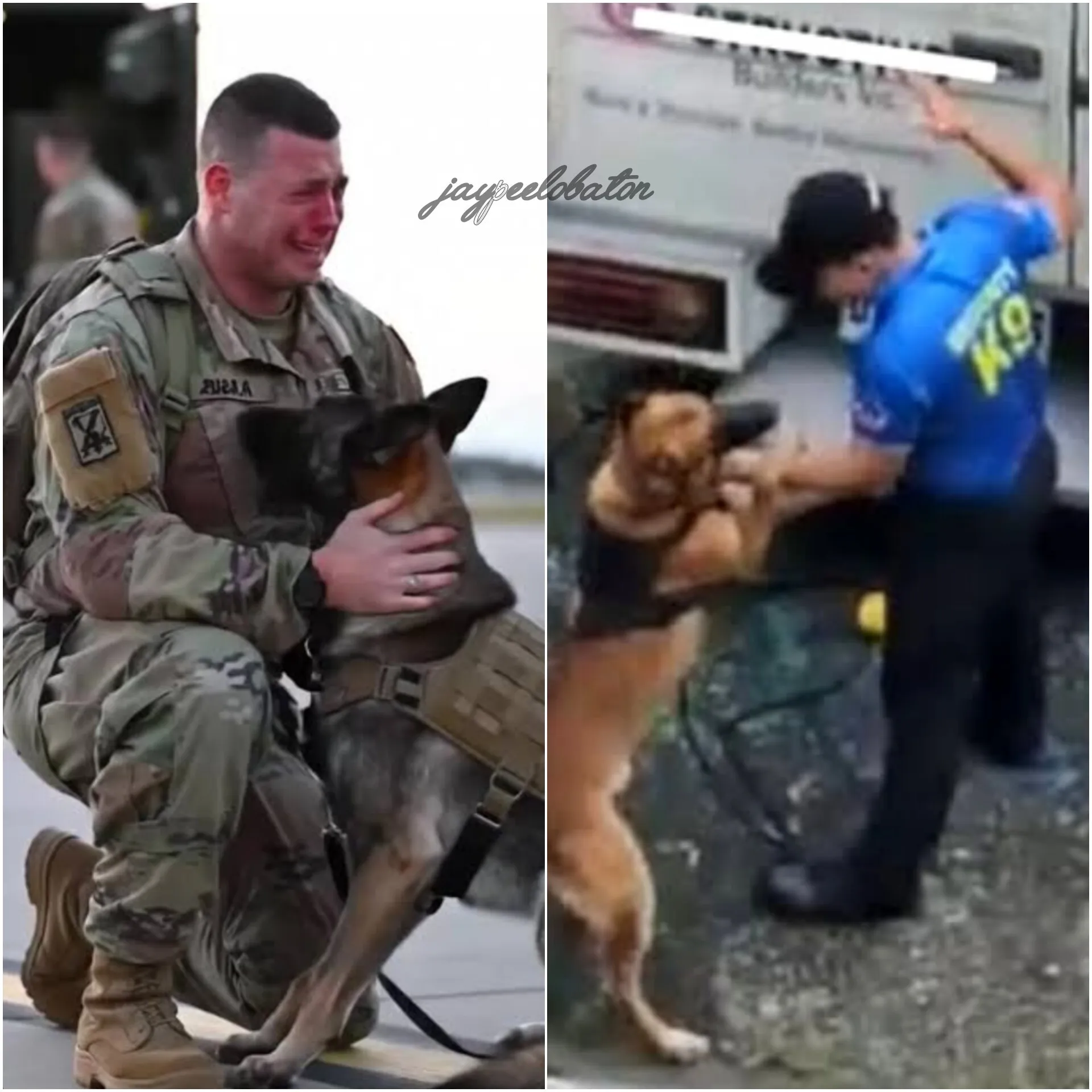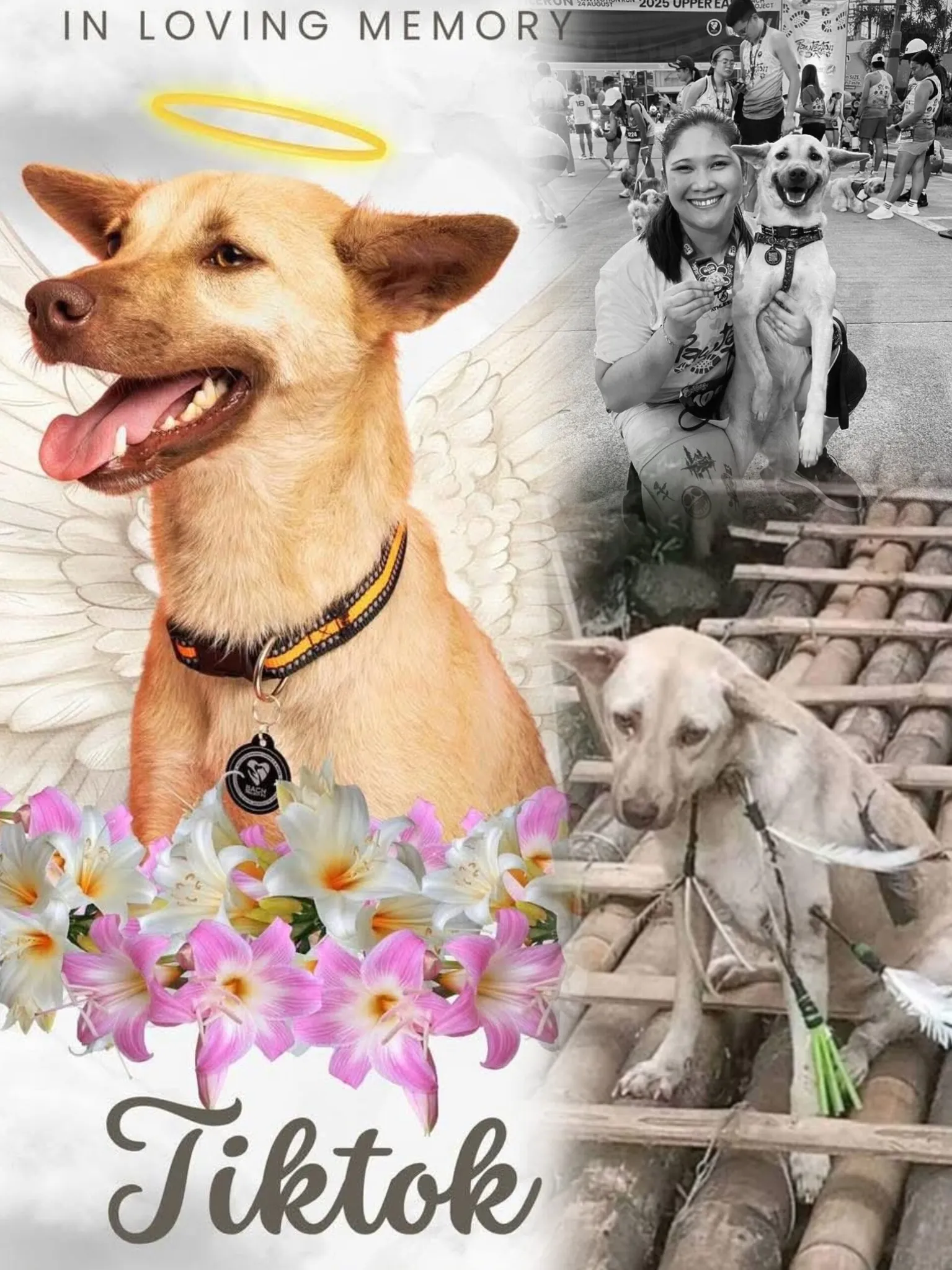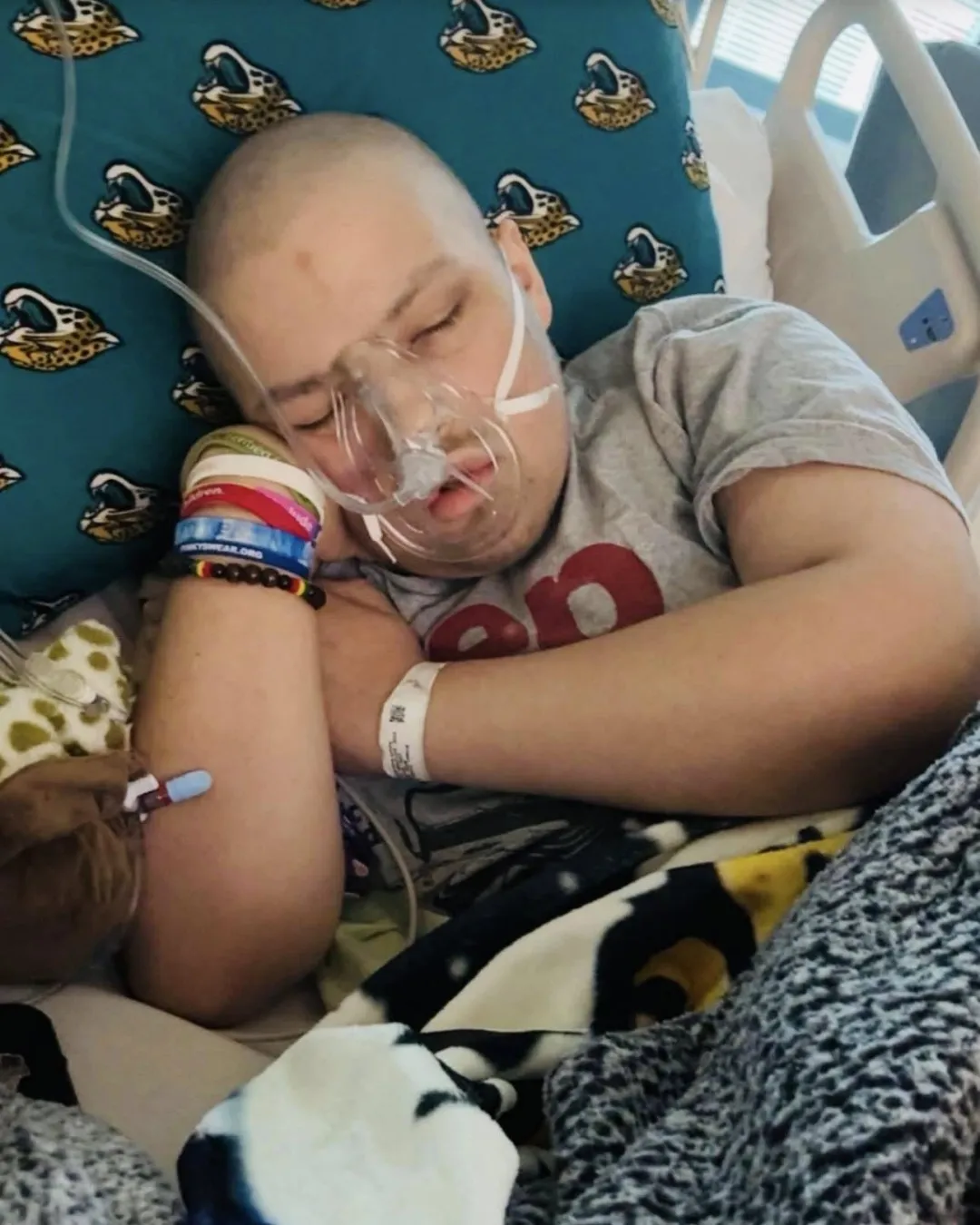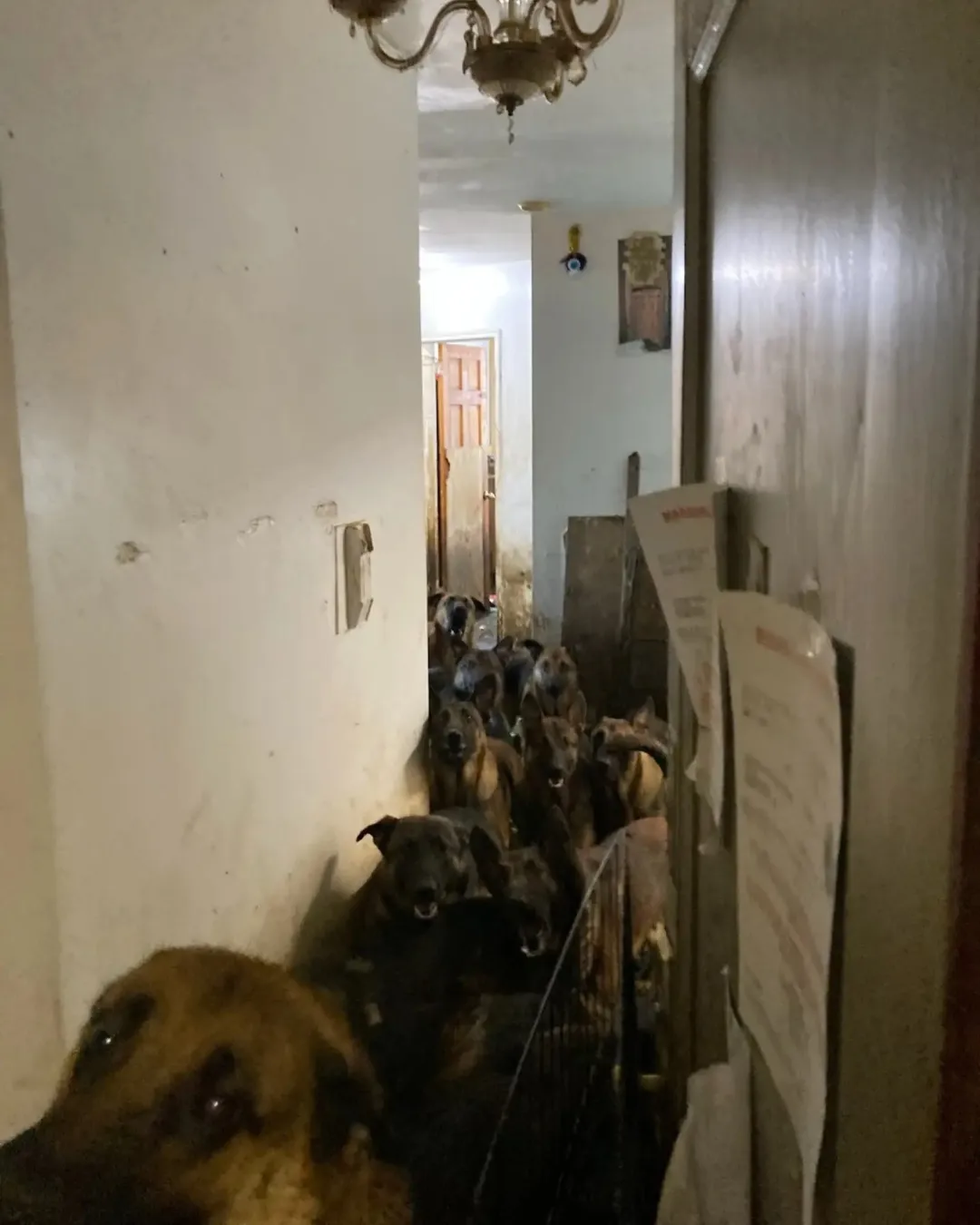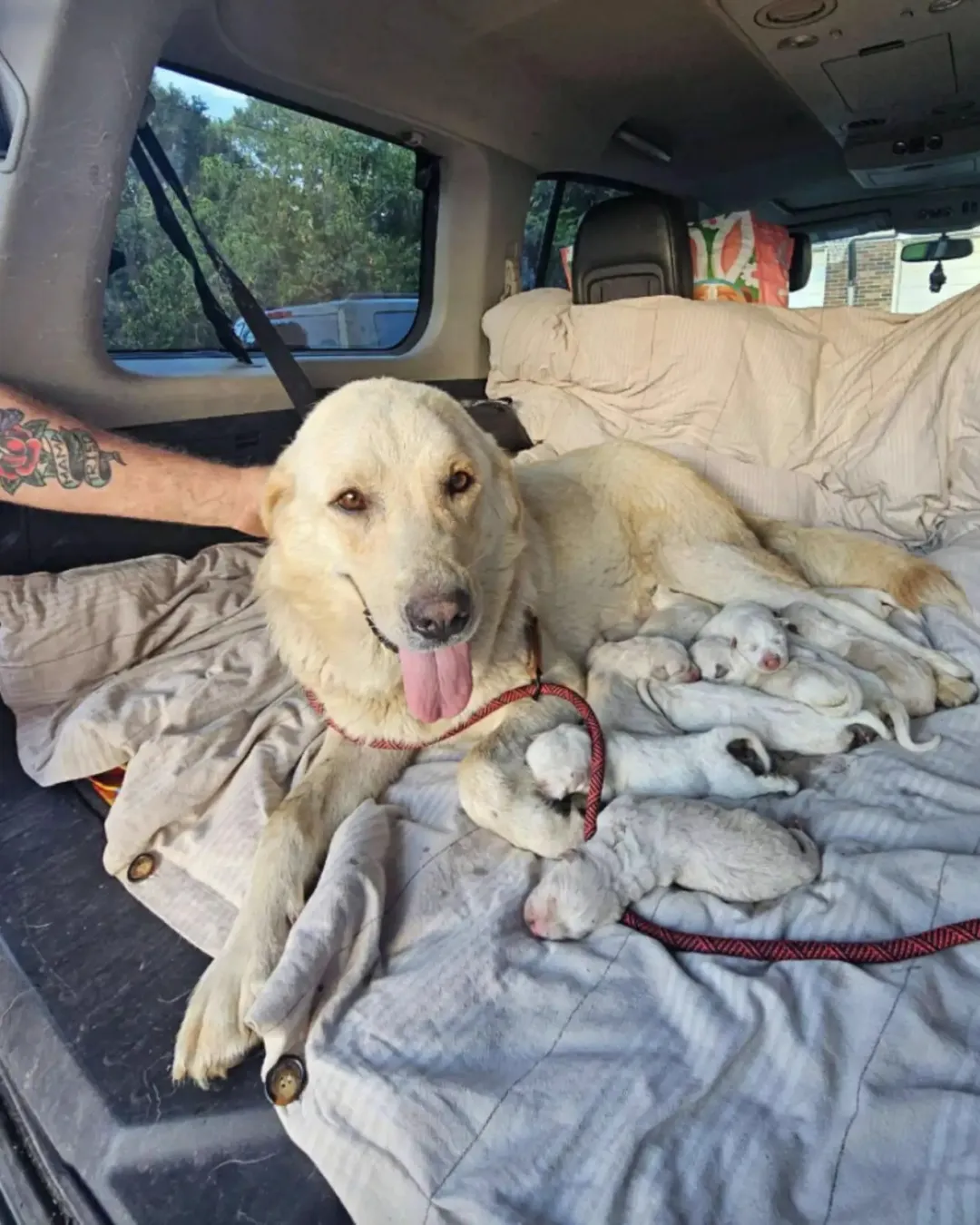Forty Lives Freed: The Belgian Malinois Rescue That Restored Hope 907

The call came in quietly, but what rescuers found when they arrived at the scene was anything but ordinary. Behind the closed doors of a modest apartment, a shocking reality awaited: forty Belgian Malinois dogs, crammed into a space meant for none.
The moment rescuers stepped inside, they were hit with an overwhelming wall of sound, smell, and chaos. Barking echoed off the walls, paws scraped at crates too small to hold them, and the air was thick with the sharp scent of neglect. Some dogs pressed desperately against the metal bars, while others shrank back, eyes wide with fear.
The team’s mission was clear—bring order to the chaos, calm the animals, and guide them to safety. But knowing the goal and achieving it were two very different things. Each movement required patience, compassion, and a steady hand.
One by one, they began.
Some dogs trembled uncontrollably as doors to their crates finally opened. Others barked frantically, their voices hoarse from days, perhaps weeks, of crying out in vain. A few were so weakened from malnutrition that they had to be carried gently in rescuers’ arms. Each dog told its own story of suffering, but each step outside the apartment marked a small victory.
Out in the fresh air, the transformation began almost immediately. The first breath of freedom brought relief. Confusion gave way to curiosity. Dogs that had cowered moments before began to sniff the ground, lift their heads, and wag tentative tails. Bowls of clean water appeared, and many drank deeply, some lapping so quickly it was clear they hadn’t tasted fresh water in far too long.
Rescuers moved carefully, speaking softly, offering reassurance with every gesture. Belgian Malinois are intelligent, loyal, and fiercely energetic dogs, bred to work closely with humans. Here, they had been denied purpose, care, and dignity. But beneath the layers of fear, their innate spirit still glimmered.
It wasn’t just about rescuing dogs from a single apartment. It was about rewriting the futures of forty living beings. Each one deserved more than survival—they deserved a chance to thrive, to heal, to rediscover trust in the humans who had failed them before.
By the end of the day, crates that once symbolized confinement became tools of freedom, safely transporting the dogs to new beginnings. The apartment, once filled with noise and despair, grew quieter as each animal was guided out.
For rescuers, exhaustion set in, but so did triumph. They had faced a daunting task and met it with compassion. More importantly, they had given forty dogs something they had been denied for too long: hope.
In the days that followed, veterinary teams assessed injuries, treated infections, and began careful plans for rehabilitation. Some dogs bore scars, physical and emotional, that would take time to heal. Others bounced back quickly, eager to play, eat, and explore. Each one, however, carried the promise of transformation.
What had begun as a scene of neglect slowly turned into a story of resilience. With care, patience, and training, Belgian Malinois can become extraordinary companions—protective, loving, and endlessly devoted. For these forty, that journey had finally begun.
The rescue also sparked conversations beyond the immediate crisis. How could so many animals end up trapped in such conditions? What systems had failed them? And most importantly, how could communities work together to ensure such suffering was not repeated?
Awareness is part of the answer. Stories like this remind the public of the responsibility that comes with animal care. Dogs are not possessions; they are lives, dependent on humans for food, shelter, love, and dignity.
But the bigger part of the answer lies in action. Rescue organizations, volunteers, donors, and adopters each play a role in ensuring that neglect is met not with silence but with swift compassion.
For now, though, the focus remains on the forty who were saved. Each one has a name now. Each one is being given medical care, healthy meals, and the first glimpses of a life beyond confinement.
In time, they will know homes with space to run, families who greet them with joy, and the simple pleasures of toys, treats, and freedom. In time, their scars will fade, replaced by trust and love.
Rescues are never just about survival—they are about transformation. And this rescue, with all its challenges, became proof of what is possible when compassion refuses to look away.
Forty Belgian Malinois once lived in fear, malnourished and confined. Today, they stand at the beginning of new lives, their resilience shining through.
The journey ahead will not be easy. Healing rarely is. But with each step, each gentle hand, and each act of love, the promise of a better tomorrow grows stronger.
In the end, what rescuers carried out of that apartment was not just forty dogs. They carried out forty second chances. Forty beating hearts ready to love again. Forty reminders that, even in the face of neglect, hope never truly disappears.
And that is the legacy of this rescue—a testament to endurance, compassion, and the belief that every life, no matter how broken, deserves the chance to begin again.
A Wedding Night in the Midst of Danger 195
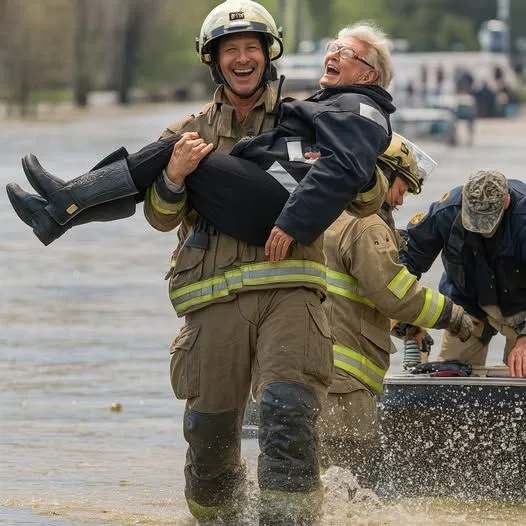

In the middle of a roaring fire, chaos swirled around them. Smoke filled the air, thick and suffocating, curling into every corner of the old apartment building. Flames licked the walls, and the heat was nearly unbearable. Yet, amid all the tension, a scene unfolded that no one onlookers would soon forget.
Firefighter Daniel Moreno had been called to the scene just minutes earlier. Reports said an elderly woman was trapped inside, unable to move quickly enough to escape the blaze. As he navigated through the smoke, feeling the heat pressing against him, he finally found her. She was frail, yet alert, gripping the edge of a scorched table as she tried to steady herself.
Gently, Daniel took her arm. “We’re going to get you out safely,” he assured her, his voice calm but firm. The two of them moved slowly, carefully, down the hallway, each step measured against the encroaching danger.
And then, something unexpected happened.
The woman, looking up at him with sparkling eyes that seemed almost mischievous, whispered, “You remind me of my wedding night.”
Daniel froze for a moment, unsure how to respond. The smoke, the flames, the danger—it all seemed to fade into the background as a surprised chuckle escaped him.
“Excuse me?” he asked, trying not to laugh out loud in the middle of the rescue.
The woman smiled faintly, her frail fingers gripping his arm for support. “Yes,” she said. “You’re tall, strong… and somehow, brave enough to carry me through everything.”
It was impossible not to laugh, even in the midst of such a perilous situation. And so he did.
As Daniel helped her step by step, down the stairs and out into the open air, his laughter mingled with hers. Neighbors and emergency responders watching from outside couldn’t quite believe what they were seeing: smoke-filled windows behind them, yet Daniel and the elderly woman sharing a moment of levity and warmth.
After she was safely placed on a stretcher and the paramedics took over, Daniel wiped his eyes, still chuckling. He turned to a colleague and said, “She just reminded me… some people never lose their charm, even in the middle of a fire.”
The incident spread quickly among the firehouse. It wasn’t just the daring rescue that people remembered—it was the unexpected humor, the human connection that persisted even when danger loomed. In the midst of life-threatening circumstances, a spark of joy had emerged, reminding everyone that courage and kindness often go hand in hand with a sense of humor.
For the woman, the memory of that night would linger long after the smoke cleared and the charred furniture was replaced. She had faced fear, weakness, and uncertainty, yet in the arms of a firefighter who carried her to safety, she found a moment of nostalgia, laughter, and a spark of life.
For Daniel, it was a reminder of why he chose this profession. Beyond the adrenaline, beyond the training, beyond the peril, it was the human connections—the smiles, the gratitude, the unexpected charm—that made every sacrifice worth it.
Even in moments of danger, some people never lose their charm. And sometimes, the simplest words—a lighthearted remark, a shared laugh—can transform a terrifying experience into a memory of warmth, courage, and unexpected joy.

